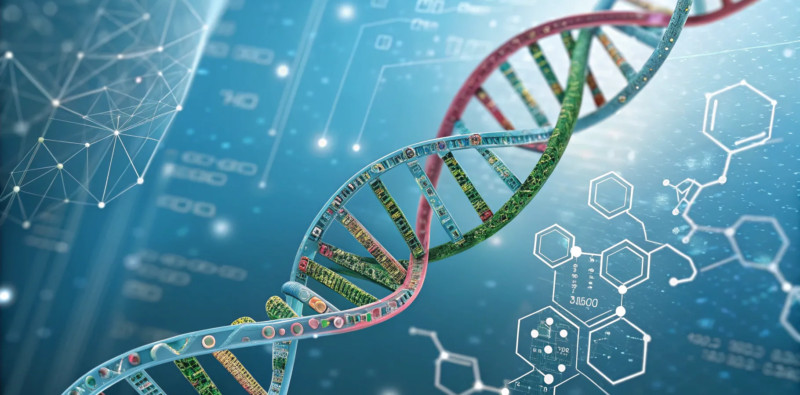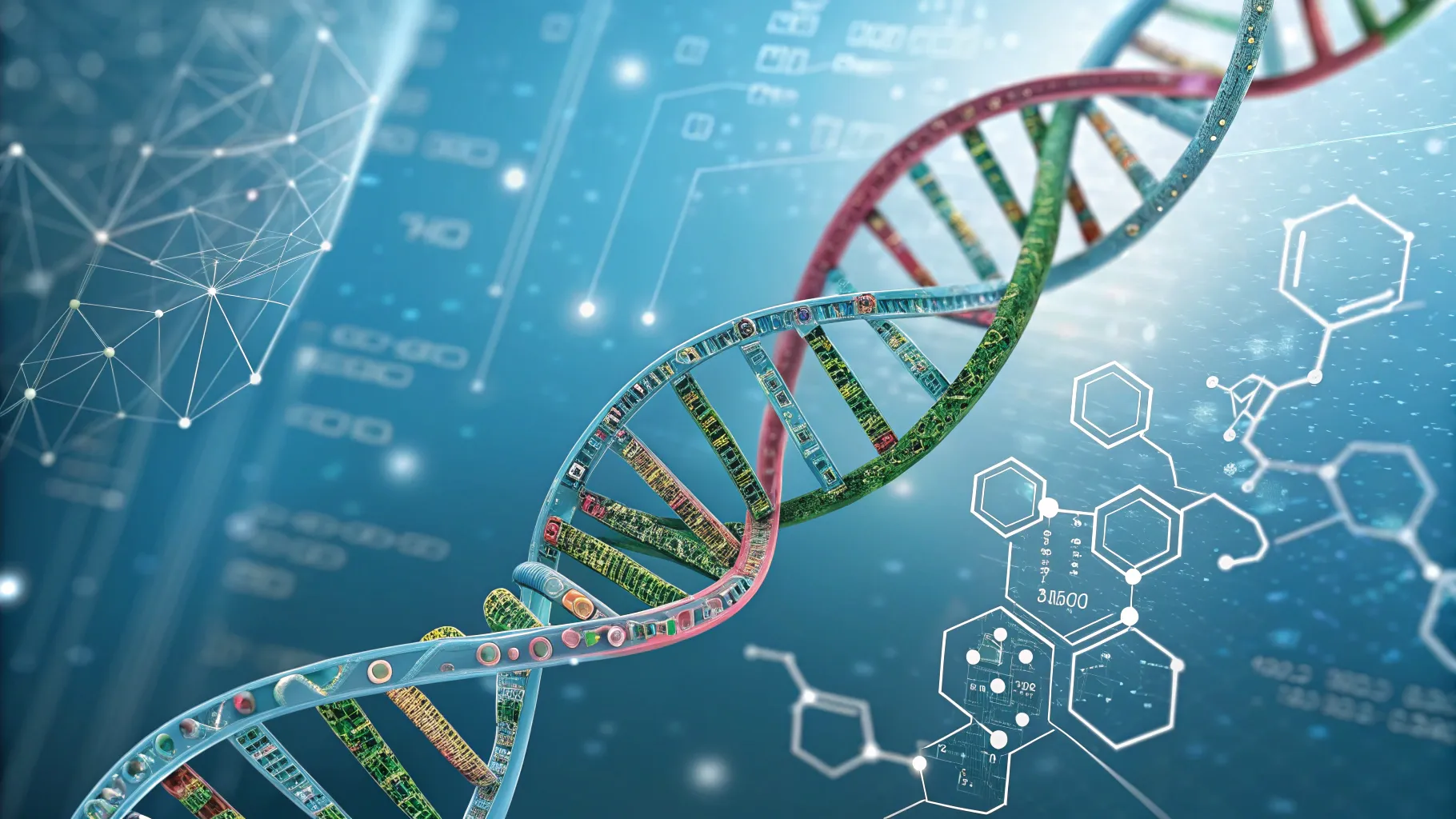
Unlocking a Career in Bioinformatics: Your Path to Becoming a Software Engineer in Genomics

Are you intrigued by the intersection of biology and technology? As a student in India, you have the opportunity to explore a rewarding career as a Bioinformatics Software Engineer. This blog will guide you through the essential steps, skills, and opportunities in this exciting field.
Table of Contents
- 🔬 Understanding Bioinformatics
- 💻 The Role of a Bioinformatics Software Engineer
- 🔍 Key Applications in Genomics
- 🛠️ Required Skills and Programming Languages
- 📚 Developing Core Biotechnology Knowledge
- 🧪 Gaining Practical Experience
- 🤝 The Importance of Networking and Communication Skills
- 📈 Job Market Insights and Opportunities
- ❌ Common Myths about Career Selection
- 📝 Actionable Steps to Start Your Career
- ❓ FAQs
🔬 Understanding Bioinformatics
Bioinformatics is an exciting field that merges biology with computer science. It focuses on using software and algorithms to analyze biological data, particularly in genomics. As the amount of biological data grows, bioinformatics becomes increasingly important for making sense of this information.
In simple terms, bioinformatics helps scientists understand complex biological processes by using computational tools. This includes tasks like analyzing DNA sequences, studying protein structures, and even predicting how genes interact. The goal is to turn raw data into meaningful insights that can lead to advancements in medicine, agriculture, and environmental science.
Why is Bioinformatics Important?
- Data Analysis: With the rise of genomic sequencing, massive amounts of data are generated. Bioinformatics helps process and analyze this data efficiently.
- Personalized Medicine: Understanding genetic variations allows for tailored treatments for individuals, leading to better health outcomes.
- Research and Development: Bioinformatics accelerates the development of new drugs and therapies by providing insights into biological mechanisms.
💻 The Role of a Bioinformatics Software Engineer
A Bioinformatics Software Engineer plays a crucial role in the field by developing the tools and software needed to analyze biological data. They bridge the gap between biology and technology, ensuring that scientists have access to the right tools for their research.
These engineers work on various projects, such as creating algorithms for DNA sequence alignment, developing databases for storing biological data, and designing software for visualizing complex biological interactions.
Key Responsibilities
- Software Development: Writing and maintaining code for bioinformatics applications.
- Data Management: Creating systems to store, retrieve, and analyze biological data.
- Collaboration: Working closely with biologists and researchers to understand their needs and translate them into software solutions.
🔍 Key Applications in Genomics
Bioinformatics has several key applications in genomics, which is the study of genomes. Here are some of the most significant areas:
1. DNA Sequencing Analysis
Tools are developed to analyze and interpret DNA sequences. This helps in identifying genetic variations that can lead to diseases.
2. Gene Expression Analysis
Software applications analyze gene expression data from experiments like microarray and RNA sequencing. This reveals how genes are turned on or off in different conditions.
3. Protein Structure Prediction
Bioinformatics tools predict protein structures based on amino acid sequences. Understanding protein structure is essential for drug design and understanding biological functions.
4. Pathway Analysis
Developing software to visualize and analyze biochemical pathways helps researchers understand how different molecules interact within cells.
🛠️ Required Skills and Programming Languages
To become a successful Bioinformatics Software Engineer, you need a specific set of skills and knowledge. Here are the essentials:
Essential Skills
- Biotechnology Knowledge: A solid understanding of biological concepts is crucial.
- Programming Skills: Proficiency in languages like Python, R, Java, and C++ is important for software development.
- Problem-Solving: The ability to analyze problems and develop efficient algorithms is key.
Programming Languages
Here are some of the most used programming languages in bioinformatics:
- Python: Popular for its simplicity and a rich ecosystem of libraries.
- R: Widely used for statistical analysis and graphical representation of data.
- Java: Useful for developing large-scale applications.
- C++: Often used for performance-critical applications.
📚 Developing Core Biotechnology Knowledge
Before diving into programming, it’s essential to build a strong foundation in biotechnology. Understanding key concepts will help you relate the biological data you work with to the software tools you develop.
Here are some topics you should focus on:
- Genetics: Learn about DNA, genes, and genetic variation.
- Cell Biology: Understand cellular processes and structures.
- Biochemistry: Study the chemical processes within living organisms.
🧪 Gaining Practical Experience
Experience is vital in bioinformatics. Here are some ways to gain practical knowledge:
1. Internships
Look for internship opportunities at research institutes or biotech companies. Internships provide hands-on experience and help you apply your theoretical knowledge.
2. Research Projects
Participating in research projects can enhance your skills. Collaborate with professors or join research groups to work on real-world problems.
3. Online Courses
Consider enrolling in online courses focused on bioinformatics, programming, and data analysis. Platforms like Coursera and edX offer valuable resources.
4. Networking
Join bioinformatics forums and attend workshops or seminars. Networking with professionals in the field can open up new opportunities for learning and collaboration.
🤝 The Importance of Networking and Communication Skills
Networking is a vital part of building a successful career in bioinformatics. Connecting with professionals in the field can open doors to job opportunities, internships, and collaborations.
Effective communication skills are equally important. As a bioinformatics software engineer, you’ll need to explain complex technical concepts to non-technical stakeholders, such as biologists and researchers. This ensures everyone is on the same page and can work together efficiently.
Here are some tips to improve your networking and communication skills:
- Attend Workshops and Seminars: Participate in events related to bioinformatics to meet industry experts and peers.
- Join Online Forums: Engage in discussions on platforms like LinkedIn or specialized bioinformatics forums.
- Practice Public Speaking: Join clubs like Toastmasters to enhance your ability to present ideas clearly.
📈 Job Market Insights and Opportunities
The job market for bioinformatics is growing rapidly. With advancements in technology and an increase in biological data, the demand for skilled professionals is higher than ever.
Many biotech companies, research institutions, and healthcare organizations are investing in bioinformatics. This creates a plethora of job opportunities. Some of the roles you might consider include:
- Bioinformatics Analyst: Analyzing biological data and providing insights for research projects.
- Data Scientist: Using statistical methods to interpret complex data sets.
- Genomics Software Developer: Creating software tools for genomic analysis.
Staying updated with industry trends and emerging technologies can give you a competitive edge in this field. Regularly read articles, follow influential professionals on social media, and participate in webinars.
❌ Common Myths about Career Selection
When it comes to choosing a career, many myths can lead students astray. It’s essential to debunk these misconceptions to make informed decisions.
- Myth 1: You Must Follow Traditional Paths: Many believe that a career in biology means working in a lab. However, fields like bioinformatics offer diverse opportunities beyond traditional roles.
- Myth 2: It’s Too Late to Change Your Mind: Some students feel trapped in their current choices. Remember, it’s never too late to explore new interests and pivot your career path.
- Myth 3: You Need a PhD to Succeed: While advanced degrees can be beneficial, many entry-level positions in bioinformatics require only a bachelor’s degree and relevant skills.
Understanding these myths can help you approach your career selection with a clearer mindset, leading to better choices.
📝 Actionable Steps to Start Your Career
Ready to embark on your career in bioinformatics? Here are some actionable steps to guide you:
- Build a Strong Foundation: Focus on your biotechnology knowledge and programming skills.
- Gain Practical Experience: Pursue internships and research projects to enhance your resume.
- Network Actively: Connect with professionals and join relevant online communities.
- Stay Informed: Keep up with the latest developments in bioinformatics and genomics.
- Apply for Jobs: Regularly check job portals and apply to positions that match your skills and interests.
By following these steps, you can create a roadmap to a successful career in bioinformatics. Stay focused and persistent!
❓ FAQs
1. What qualifications do I need to become a bioinformatics software engineer?
A bachelor’s degree in biotechnology, computer science, or a related field is typically required. Additional skills in programming and data analysis are also essential.
2. Are there online courses available for bioinformatics?
Yes, many platforms offer online courses in bioinformatics, data analysis, and programming languages. Websites like Coursera and edX are great places to start.
3. How can I gain experience in bioinformatics?
Look for internships, volunteer for research projects, and participate in relevant workshops or seminars. Practical experience is crucial for building your skills.
4. Is bioinformatics a good career option in India?
Absolutely! The demand for bioinformatics professionals is growing in India, with numerous opportunities in biotech companies, research institutions, and healthcare organizations.
5. What programming languages should I learn for bioinformatics?
Focus on languages such as Python, R, and Java. These are widely used in bioinformatics for data analysis and software development.
